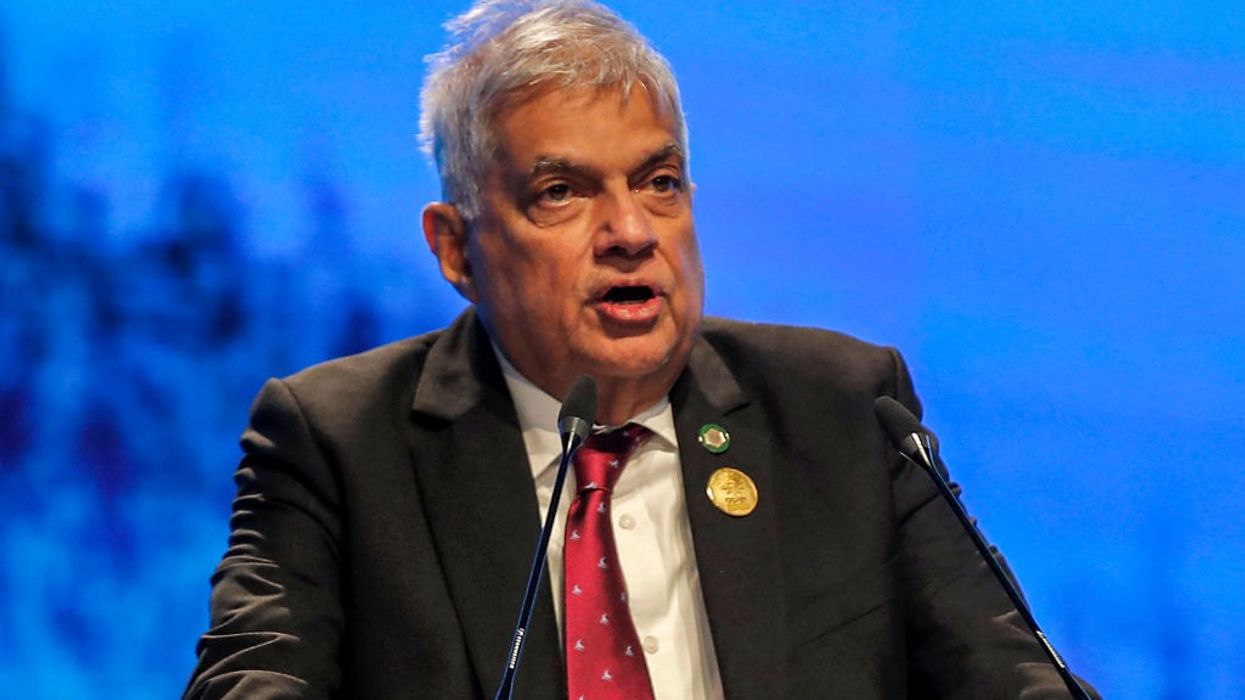Sri Lankan President Ranil Wickremesinghe on Wednesday rejected the opposition's demand for early parliamentary elections and vowed to use the military to crush any future anti-government protests aimed at regime change.
Wickremesinghe, 73, who took over as the President of Sri Lanka in July this year after then-president Gotabaya Rajapaksa fled Colombo in the face of the country's worst economic crisis since 1948, said that he will not dissolve the parliament until the economic crisis is resolved.
"I will not dissolve parliament early until the economic crisis can be resolved," he said while speaking in Parliament.
Wickremesinghe has a mandate to serve out the rest of Rajapaksa’s term, which ends in November 2024. However, the opposition parties are demanding early parliamentary elections, claiming that Wickremesinghe’s government lacks electoral credibility. The next presidential election is scheduled to be held in 2024.
Sri Lanka has witnessed its worst economic crisis since early this year, with running out of reserves to pay for imports.
The country experienced long queues for fuel, and cooking gas while all essential supplies ran dry.
In mid-April, the country declared its first-ever sovereign debt default before approaching the International Monetary Fund for a bailout facility.
The island nation survived with essential supplies being made available through dedicated Indian credit lines.
The Indian assistance was worth 4 billion dollars to help Sri Lanka tide over the economic crisis in the first half of the year.
Widespread unrest over the government’s handling of the economic crisis turned into a political crisis. Tens of thousands of people took to the streets for months-long protests and ousted the former president Gotabaya Rajapaksa in mid-July.
Wickremesinghe succeeded him after Rajapaksa had fled the country and ordered the military to crack down on protesters who had occupied government buildings.
On Wednesday, Wickremesinghe said that even if the protesters call him a "dictator" they would need to obtain police permission to stage street protests.
"They can call me a dictator but must obtain police permission to stage street protests and cause road traffic. There is a plan to stage another Aragalaya (mass public protest) to oust the government. I will not allow that. I will put the military and use emergency laws to stop them if they try it again,” Wickremesinghe said.
Wickremesinghe faced criticism for ordering the crackdown and detaining at least two protesters under the draconian Prevention of Terrorism Act.
Wickremesinghe said a radical political party named Frontline Socialist Party was behind in organising street protests to achieve their political aims.
(PTI)




